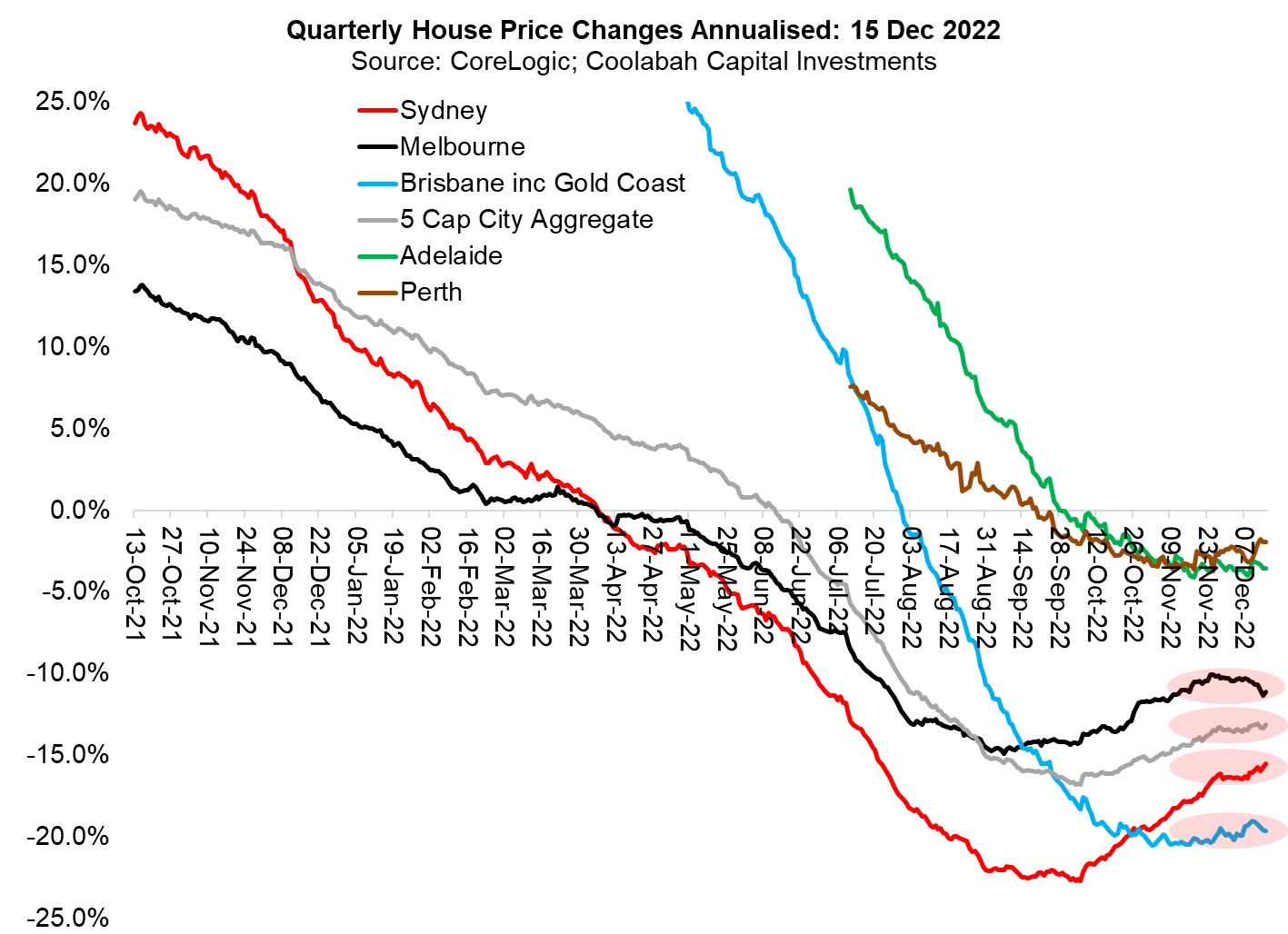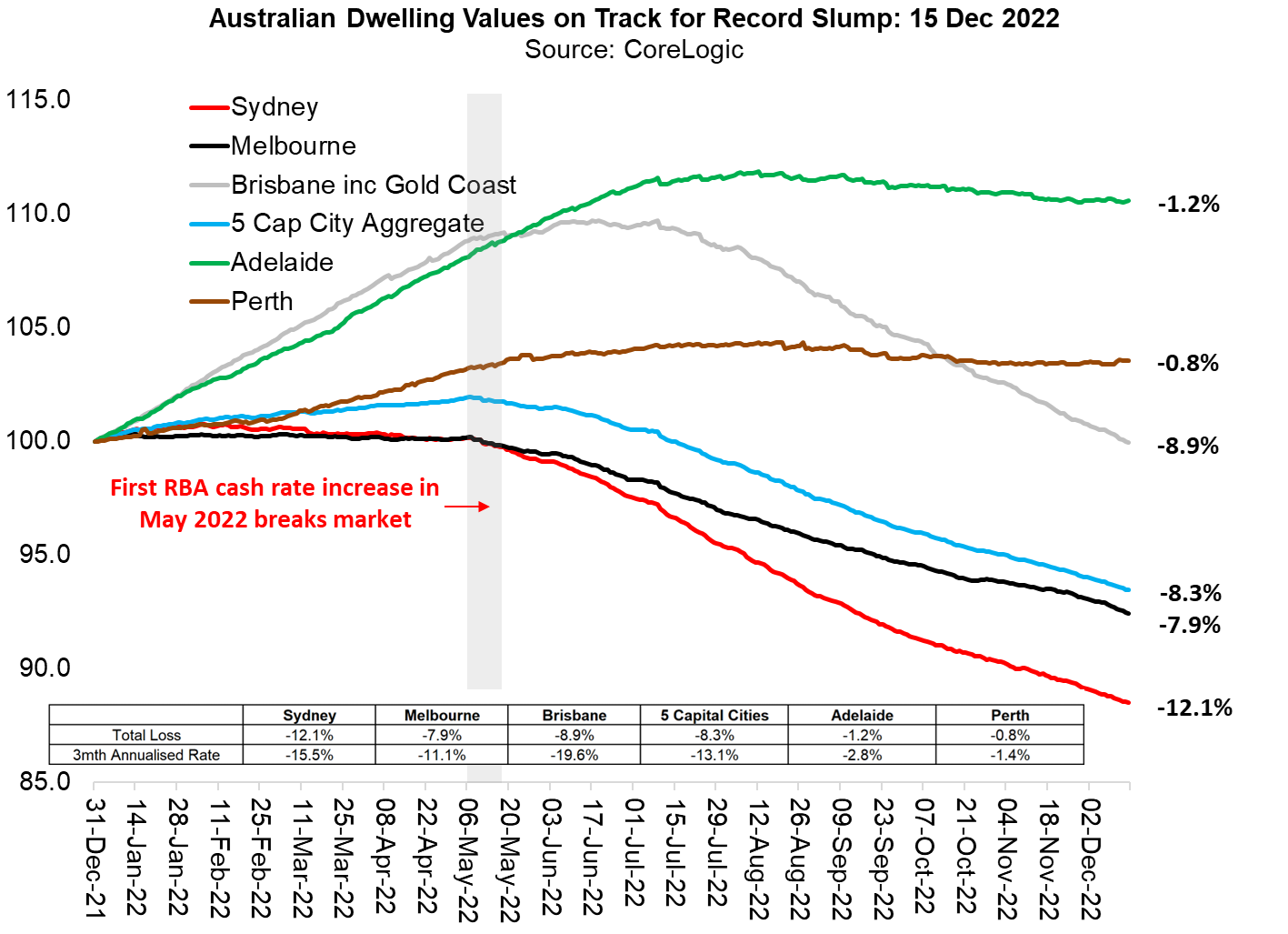House price falls are not slowing
The latest data from CoreLogic underscores the point that Australia's record housing crash is not slowing right now. The first chart below shows the 3 month annualised rate of change in dwelling values for the major cities and the 5 capital city index. When these lines move sideways, it means that house prices are declining at a constant rate. Over the 3 months to 15 December, Aussie house prices have been falling at a 13% annual rate. This is represented by the grey-line in the chart below. And the pace of these house price declines has not really changed in the last couple of months. Similar stories are playing out in Brisbane, Sydney, Melbourne, Adelaide and Perth. The worst performing market is represented by the blue line, Brisbane, where house prices are crashing at a 19.6% annual rate. At some point this has to slow. Sydney prices are currently falling at a 15.5% annual pace, down from the 20% plus annualised losses observed in the middle of the year. The value of bricks and mortar in the more modest Melbourne market is sliding at an 11.1% annual rate. The cheapest of the big cities, Adelaide and Perth, continue to outperform, with only very small declines thus far. Of course, the more the RBA hikes rates, the worse this crash will get. And the RBA is rail-roading towards another hike in February unless it comes to its senses.

In terms of the cumulative or total house price declines, the 5 capital city index has now fallen 8.3% and is 55% along the way to the lower bound of our October 2021 forecast for a total peak-to-trough decline of 15-25%. In Sydney, home values have slumped more than 12.1%. Brisbane is down almost 9% followed by a cica 8% loss in Melbourne. With 1-in-4 home loans switching from ultra-low fixed-rates set in 2020 and 2021 at just 1.75% to 2.25% to much higher variable rates of 5-6% over the next year, the Aussie housing pain is bound to get a lot worse. According to the RBA's own analysis, almost 15% of all borrowers will have negative disposable income if they lift their cash rate to 3.6% (it is currently 3.1%), which is certain to trigger a big increase in currently very low mortgage default rates.

2 topics

